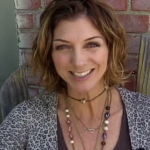When on a path of personal growth, we can be at risk of being too rigid in our quest. Are you evolving or embracing unhealthy change? Here’s how to tell.
These days just about everyone from your politician to your hairdresser is talking about the process of evolving as a person. From “life hacks” to “personal improvement seminars,” it seems like the people of the world are hungry for deep transformational change.
But what is the difference between healthy and unhealthy change? Change that is detrimental to our lives vs change that is growth-oriented and positive. Here are a few ways in which to tell the difference:
1. Doing a 180.
Have you ever known someone for a long time who does a 180? That is, someone who becomes the exact opposite than the person they have been or the person you have known them to be?
Typical and healthy kinds of change usually happen slowly, ticking around the 360 degrees towards betterment. We can get mistrustful of people who say one thing then turn around and say the complete opposite. In that same way, we can become suspicious of the atheist who suddenly becomes the most pious person we know. Or the long time family man who leaves his partner and children to motorcycle around the world with a new lover.
These kinds of changes are often reactionary, changes in which we may be running away from an inevitability or avoiding/hiding something about ourselves that we believe to reflect an ugliness or an unsavory truth we are afraid of. Sometimes this kind of reaction is the only way we can think of to move forward at the time. But in order to move this process from reactionary toward evolution, we may need to back track a little bit and reflect on the meaning and intention of our actions and our change choices.
2. Too fast, too furious.
Ever have an experience in which you felt one way one minute and then suddenly, everything changes? A very intense shift in perspective? You may have a monumental insight, an experience of feeling that all of a sudden something that was previously unknown becomes known. Or with the delivery of new information, you are able to see things in a totally different light. While this type of change is rare, it can be incredibly inspirational and life changing. However, most change does not come in such an intense package.
Most change happens slowly, bit by bit, over time. This is precisely why it may seem unhealthy when change happens in a very fast manner. This kind of fast change happens when we have traumatic experiences—things such as a car accident, being assaulted, extreme loss like death of a close one, or a threatening or life altering experience like diagnosis of an illness or other health issue. These kinds of experiences can change us radically and sometimes permanently.
When this happens, our reactions are born out of crisis; our personalities can shift and grow around intense wounding. It is important to be able to seek out help through guidance or a safe person in counseling to make sense of these kinds of overwhelming circumstances. Sometimes we need help metabolizing the experiences we have, so we can gain different kinds of understanding, reflecting more slowly on things that happened quickly that we may not have had control over. In this way, we are able make more sense of how we may have changed and gain a sense of control over our choices and how we want to act or be moving forward.
3. Tunnel vision ahead.
Sometimes when there is a new way forward that opens to us, we want to just get on that path and start moving forward. However, sometimes it seems like we are on a high-speed highway and there is no slowing down or rest stop, and certainly, no turning back.
While it can be tempting to just want to look forward, there is also a downfall to this approach. The notion that “those who forget history are doomed to repeat it” may also be true for personal change processes. Sometimes we can look toward the future without acknowledging our own history. While charging forward, we can forget to locate our experience in the present, understanding how we got here.
We need to notice and learn about why we may have made the choices we did and why we decide to make different choices in the present and going forward. Without an understanding of our change process, we may find ourselves back in the same place, possibly making similar choices or mistakes. There is no evolution without transformation and understanding.
4. All in.
Most long lasting change happens in stages and impacts one or a few different areas of our life—kind of a “one thing at a time” approach. If you found your life was going along relatively normally, then noticed your whole life began changing in every direction, you may be on the road toward unhealthy change.
If being “all in” feels forceful or urgent, there may be unconscious motivations behind your “about face” changing style. Of course, there are times in our lives, milestones, in which a natural and expected accelerated change may be taking place—things like puberty, a first year in college, or becoming a parent for the first time. In addition, circumstances that are dramatic and drastic—like moving to a different country—may also have this same kind of accelerated change rate. Indeed, change-oriented people may even choose to travel as a strong motivator toward having experiences in order to grow. But sometimes we can have reactionary reactions, running away or hiding from truths that are difficult or scary.
Do you find yourself needing to change everything at once? Slow down and take stock of what is happening, your reasons behind your choices and the motivations that may be propelling you forward in an all encompassing way.











